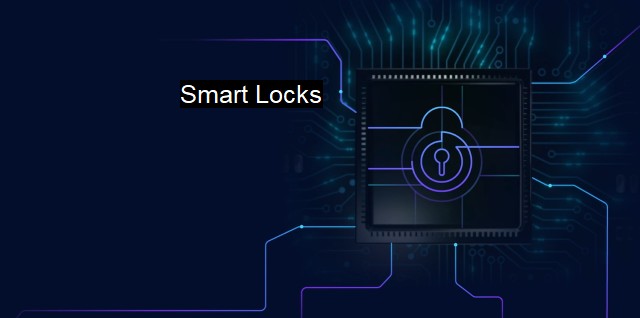What are Smart Locks?
The Rise of Smart Locks: Balancing Convenience and Security in Your Home
"Smart locks" represent an area of technology that has seen significant development and improvement in recent years. They form part of the Internet of Things (IoT) — an umbrella term encompassing all devices connected to the internet facilitating communication and data sharing between them. From a cybersecurity and antivirus context, smart locks exemplify the intertwining of security with an ever more connected digital world.At a basic level, smart locks are digital locking systems which could be remotely operated and monitored. Replacing traditional keys with smartphones or key fobs, they allow users to lock or unlock doors using a mobile application or through other means like voice commands. Besides, few advanced models also integrate with smart home automation systems, allowing for seamless functionality with other IoT devices such as smart alarms and smart lighting.
Being internet-connected devices, the convenience smart locks offer doesn't come without its potential pitfalls. As cybersecurity and antivirus specialist know well, anything linked to the internet, especially IoT devices, also creates a potential target for malicious attacks. Since the primary function of a smart lock is to maintain security and privacy, a breach in its system could have devastating effects for both physical and data security.
Potential vulnerabilities associated with smart locks (and IoT devices in general) include risks such as the capturing of data while it's being transmitted over networks, the possibility of device manipulation through security weaknesses, and techniques such as "brute force" operations where hackers try multiple passwords until they achieve successful access.
Just as we require antivirus software to protect our digital devices from virtual threats, there is a pressing need for stringent cybersecurity measures within smart lock technology. Reputable smart lock manufacturers strive hard to implement rigorous security features within their products. Encrypted communication, automatic system updates, two-factor authentication, detailed activity logs, and ensuring compliance with strict industry security standards are gestures towards this safety.
An encrypted digital key or access code works much like an antivirus system; it protects unwanted manual entry into secure areas just like antivirus software protects from digital infiltration. Such encrypted systems are notoriously difficult to infiltrate, providing a strong barrier against potential cyber threats.
Automatic updates ensure any known weaknesses found in smart locks software are patched quickly, minimizing the window of time potential attackers have to manipulate those vulnerabilities. Two-factor authentication requires users to verify their identity twice before being given access, rendering ‘brute force’ break-ins virtually impossible. These features reflect how cybersecurity practices have directly influenced the manufacturing and upkeep of smart locks.
Just as phishing attempts may trick users into inviting viruses onto their traditional devices, similar attempts can occur when it come to smart locks. Users may inadvertently download a malicious application disguised as a control app for their smart lock. The factors that one usually relies on to maintain their digital security should be equally applied to their considerations about smart lock usage and setup.
In the battle against cyber threats, manufacturers must think smarter when developing IoT devices and consumers must be more vigilant. Smart locks represent a revolution in the way we secure our homes and create some very attractive benefits. it's essential to remain conscious of their potential cybersecurity vulnerabilities. By understanding the cybersecurity implications of smart locks, users can enjoy the further interconnectivity of their devices while simultaneously ensuring their most critical asset - their home - remains safe and secure.

Smart Locks FAQs
What is a smart lock?
A smart lock is an electronic device that allows you to lock and unlock your door using a mobile application, voice commands, or a key fob. Unlike traditional locks, smart locks are connected to the internet via Wi-Fi or Bluetooth, enabling remote access control and monitoring.How secure are smart locks?
Smart locks can be secure if they are properly designed and implemented. However, just like any internet-connected device, they can be vulnerable to cyber attacks if not adequately protected. It is essential to choose a smart lock that has robust security features, such as end-to-end encryption, multi-factor authentication, and regular software updates.Can smart locks be hacked?
Yes, like any other internet-connected device, smart locks can be hacked if they have vulnerabilities that hackers can exploit. Common hacking techniques include brute force attacks, Wi-Fi jamming, and phishing. However, by implementing best security practices, such as using strong passwords, updating software regularly, and avoiding public Wi-Fi networks, you can reduce the risk of being hacked.Do smart locks have antivirus protection?
Smart locks typically do not have antivirus protection in the traditional sense. However, many smart lock manufacturers incorporate security features like encryption and authentication to protect against cyber attacks. It is vital to research a smart lock's security features before purchasing one and take appropriate measures to protect your network from cyber threats.| | A | | | B | | | C | | | D | | | E | | | F | | | G | | | H | | | I | | | J | | | K | | | L | | | M | |
| | N | | | O | | | P | | | Q | | | R | | | S | | | T | | | U | | | V | | | W | | | X | | | Y | | | Z | |
| | 1 | | | 2 | | | 3 | | | 4 | | | 7 | | | 8 | | |||||||